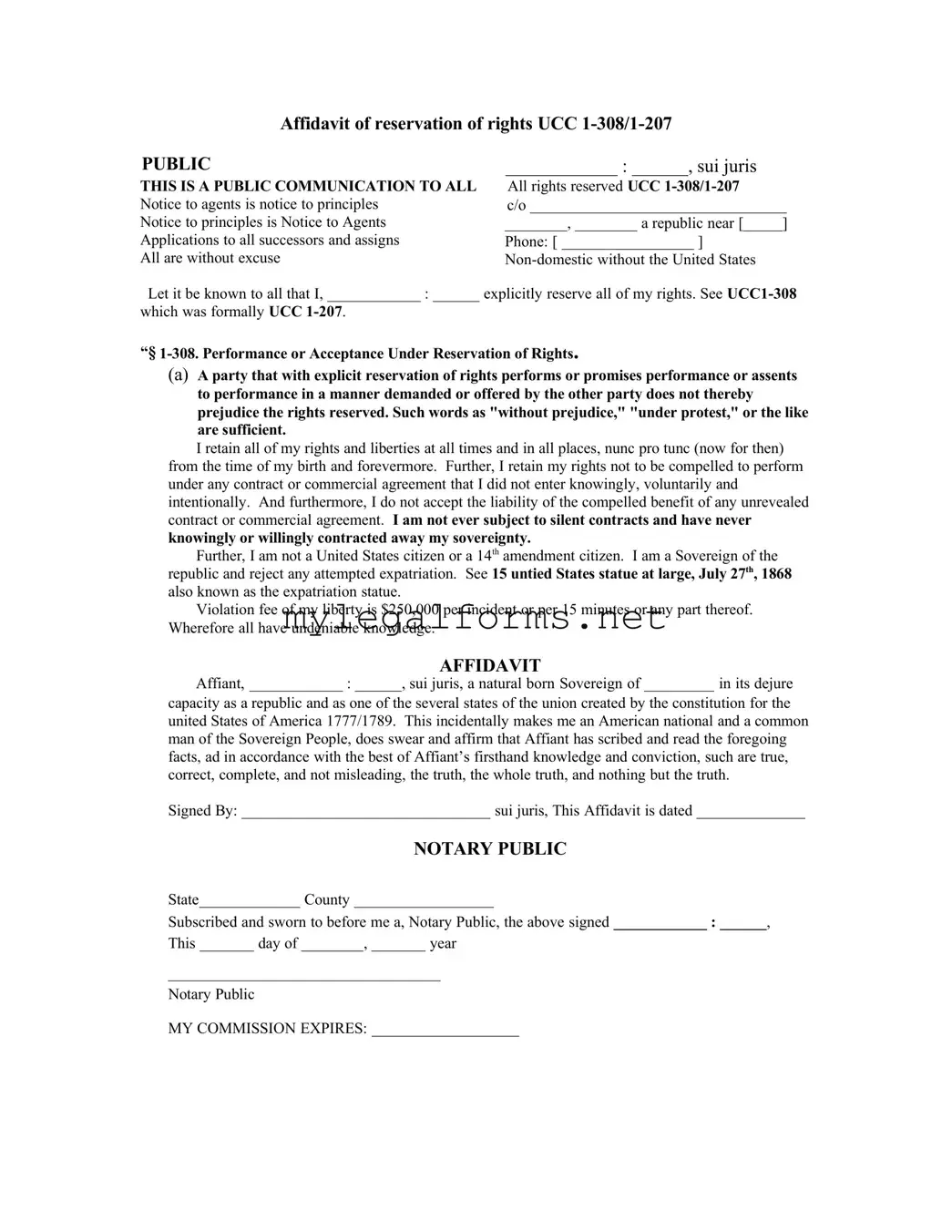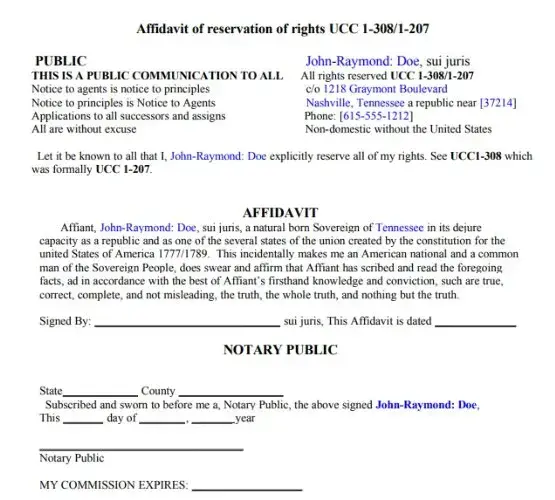Ucc 1 308 Template
The UCC 1-308 form, also known as the Affidavit of Reservation of Rights, serves as a public declaration that individuals can use to explicitly reserve their rights in legal matters. This form is rooted in the Uniform Commercial Code and allows a party to perform or accept performance while maintaining their rights. By utilizing this form, individuals assert their sovereignty and protect themselves from obligations they did not knowingly agree to.
Launch Ucc 1 308 Editor

Ucc 1 308 Template
Launch Ucc 1 308 Editor

Launch Ucc 1 308 Editor
or
⇓ PDF Form
Complete the form at your pace — fast
Finish your Ucc 1 308 online and download the final version.
